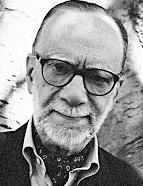

In this vast production (which saw several, sometimes updated reissues from the 1900s onwards), JAF continued to practice an art history deeply committed to the conceptualisation of the sociology of art, influenced by Francastel but progressively gaining autonomy in a 'Francian' theorisation: art history requires its own methodologies, which distinguish the indispensability of formal analysis and aesthetic consciousness as distinct marks from other fields of history. In other words, using the concepts he cherished most, he defined three levels of a historian's work: the study of 'artistic facts,' their acknowledgement as 'social facts,' and their weaving into broader contexts he referred to as 'artistic life.' Or in his own words: 'An aesthetic reading founded on a Gestalt awareness and a sociocultural integration cent re d around a structurali s ing process, that is, dynamic and global, thus impose themselves as conditions for understanding the work of art in its dialectical relationships with society, which at the same time determines such values and is determined by them. The overlap of this reading and this integration, in varying degrees, may ultimately define the historiographical method proposed here.' (FRANÇA, 1997: 101). The most significant feature of this approach lies in the conviction that the knowledge, study, and appreciation of contemporary art is a fundamental vehicle for understanding the artistic cycles of the past. This represents a shift from the previous art history practices in Portugal, which systematically ignored or failed to understand 20th-century art, marking the inaugural act of a new historiographical cycle associated with the acknowledgement of the 'present' in the epistemology of the social sciences. It also displays a political attitude towards a vision and practice of history focused on 'noble periods,' be they the Middle Ages or the dawn of the Modern Age, where Portuguese art history predominantly positioned itself. JAF was always a man of opposition to the Estado Novo regime; he joined the Socialist Party after the 25 April, and although he was never an active militant, he was a citizen of confrontations and causes, defending the urgency of a contemporary culture in tune with the most dynamic values of Europe's major cities, while also advocating the obligation to defend and value memory and heritage. This attitude, with a deliberate ethical stance, was particularly evident in Lisbon, in various initiatives involving research, academic writing and dissemination,exhibitions, and regular collaboration with the Lisbon City Council to defend and protect 19th-century and early 20th-century architecture when it was still systematically neglected.
